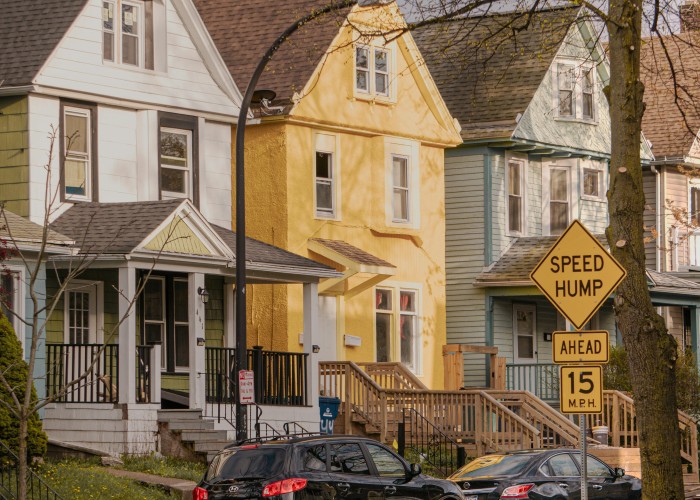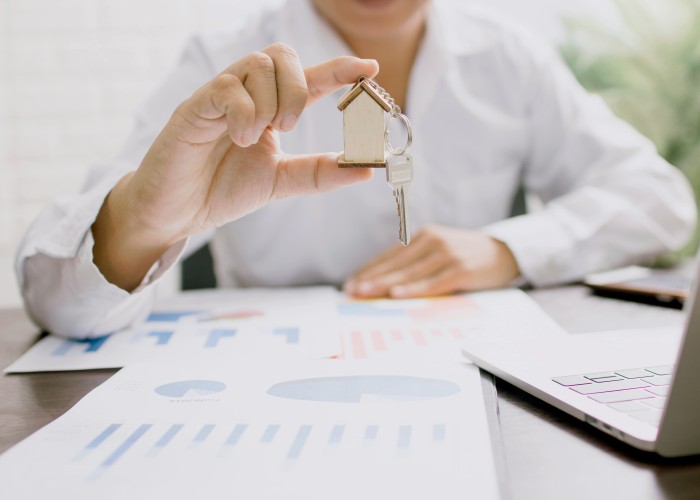Deciding between renting and buying a home is one of the most important financial decisions many people face. In 2025, with rising interest rates, changing property values, and evolving work patterns, this decision has become even more complex. Renting vs Buying a Home.
So, should you rent or buy in today’s market? In this blog, we’ll explore the pros and cons of both options, financial considerations, lifestyle factors, and which choice might suit you best depending on your goals. This post is part of US PROPERTY MARKET BLOG, a platform built to provide general real estate insights about the USA and other countries. We don’t offer property dealing or real estate services. For more articles, visit our blog section or learn more about us.
Understanding the 2025 Housing Market Landscape
Before diving into the rent vs buy debate, let’s look at a few key trends shaping the real estate market in 2025:
- Home prices have stabilized in many areas after the post-pandemic boom.
- Mortgage interest rates remain high, making monthly payments more expensive for buyers.
- Rental prices are also increasing, especially in urban centers.
- Inventory of houses for sale is still tight, especially in desirable locations.
- Remote work flexibility allows more people to relocate, changing demand patterns across states.
These trends affect both renters and buyers and make the decision more dependent on personal goals, finances, and future plans.
Pros of Buying a Home in 2025
Buying a home comes with long-term benefits, especially if you plan to stay in one place for several years.
1. Building Equity
One of the biggest advantages of owning a home is that your monthly mortgage payments contribute toward building home equity, not your landlord’s wealth. Over time, this becomes a valuable financial asset.
2. Stability and Control
When you own your home, you’re not subject to rent hikes or landlord decisions. You can renovate, upgrade, or make changes without seeking approval—especially useful when considering tips for staging home to sell later.
3. Potential Appreciation
Although markets vary, real estate tends to increase in value over time. Smart buyers who do their homework and follow property investment tips can benefit from long-term appreciation.
4. Tax Advantages
Homeowners may qualify for tax deductions on mortgage interest and property taxes, depending on your state and federal laws—helping offset some of the cost of ownership.
Cons of Buying a Home in 2025
Buying isn’t always the best move for everyone, especially with market conditions in flux.
1. High Upfront Costs
Buying a home requires a down payment (often 10–20 percent), closing costs, and sometimes renovations. It’s a major investment up front compared to a security deposit on a rental.
2. Interest Rates Are Elevated
In 2025, mortgage interest rates are still higher than in recent years. This increases the total cost of ownership and monthly payments, affecting your house buying budget.
3. Maintenance and Responsibility
As a homeowner, you are responsible for all maintenance, repairs, and property taxes. These costs can add up over time. Renting vs Buying a Home.
Pros of Renting in 2025
Renting still makes sense for many people, especially those who need flexibility or are uncertain about their long-term plans.
1. Flexibility
Renting gives you the freedom to move without the hassle of selling a home. For people who may relocate for work, study, or lifestyle, it offers unmatched mobility.
2. Lower Upfront Costs
Renting usually requires a deposit and first month’s rent—much less than a down payment. This makes it easier for those just starting out or saving for future property investment.
3. No Maintenance Worries
In most rental agreements, landlords cover repairs and maintenance, removing that burden from the tenant.
Cons of Renting in 2025
While renting has benefits, it also comes with limitations.
1. No Equity
Rent payments go to the landlord, not toward building your own wealth. Over time, this can be a missed opportunity for financial growth.
2. Rental Increases
Rent prices have been rising in many cities, often faster than wages. As leases renew, renters may find themselves priced out of their neighborhoods.
3. Limited Control
You may not be allowed to paint walls, install appliances, or customize your living space. Lease restrictions can limit how you live in your home.
Renting vs Buying: Which Makes More Sense for You?
The answer depends on your personal circumstances. Let’s compare based on a few key areas:
A. Financial Stability
If you have a stable income, good credit, and savings for a down payment, buying might be more beneficial long term. Otherwise, renting may help you stay flexible while you save.
B. Length of Stay
Buying usually makes sense if you plan to stay in a home for at least 5–7 years. This gives time to recover transaction costs and benefit from appreciation.
C. Job Security and Mobility
If your job requires relocation or you’re unsure about your future in a specific area, renting offers more freedom.
D. Market Conditions
In fast-growing areas, buying early may help you avoid rising home prices. Use our real estate investment tips to spot growing markets with strong returns. Renting vs Buying a Home.
Property Investment Tips for 2025
Even if you’re renting now, real estate remains one of the most powerful tools for wealth building. Here are a few property investment tips for 2025:
- Look for undervalued areas in emerging cities.
- Explore land for sale for long-term development potential.
- Diversify with commercial real estate if residential markets are too expensive.
- Consider fix-and-flip projects or rental property investing.
If buying your primary home doesn’t make sense now, you can still consider investment property options that generate income and grow in value over time.
Hidden Costs to Consider
Whether renting or buying, there are hidden costs you need to factor into your decision:
- Buying: Property taxes, HOA fees, maintenance, homeowners insurance, upgrades.
- Renting: Renters insurance, security deposits, lease break fees, utilities.
Using a monthly budget calculator can help compare the true cost of each option.
Market Watch: What to Expect in 2025
The housing market in 2025 is expected to see moderate growth in many states. Some areas will see slower price increases, giving buyers more negotiating power. Meanwhile, rental demand remains strong in urban areas and college towns.
For more regional insights, follow trends in houses for sale, homes for sale, land for sale, and commercial real estate in your state through local property platforms and insights from US PROPERTY MARKET BLOG.
Final Thoughts: Make the Choice That Fits Your Life
There’s no universal answer to whether renting or buying is better in 2025. It all comes down to your lifestyle, goals, and financial situation. Renting vs Buying a Home.







Leave a Reply